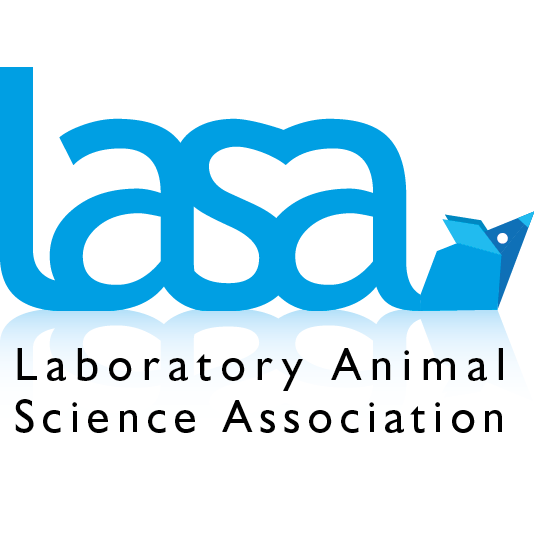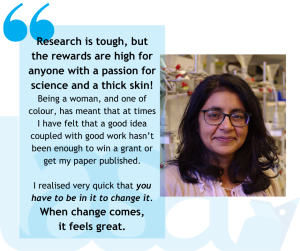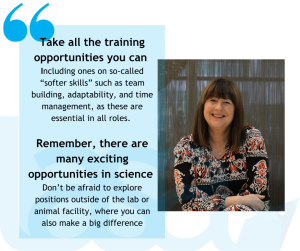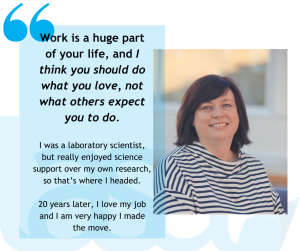This International Day of Women and Girls in STEM, we spoke to four women who work in the field of laboratory animal science and asked them, if you had to give one piece of advice to women or girls interested in a career in science, what would it be?
Professor Amrita Ahluwalia is a renowned pharmacologist, specialising in developing therapeutics targeting inflammation in the cardiovascular system. Amrita has held notable roles throughout her career including editor-in-chief of the British Journal of Pharmacology, Director of William Harvey Research Institute, and Dean for Research at Queen Mary University of London.
On top of an impressive academic and professional resume, Amrita also demonstrates a passion for championing diversity, as well as continually advocating for early-career researchers and women in science. Amrita was the first Chair of the Women in Pharmacology Committee and led the award of the first Athena Swan Silver prize for Barts & The London Medical School.
Professor Hazel Screen is a professor of Biomedical Engineering at Queen Mary University of London, Director of the UK-wide Organ-on-a-chip Technologies Network, and a previous keynote speaker at our LASA 60th Anniversary Annual Conference.
Hazel’s work has pioneered organ-on-a-chip technology to replace animal models in research, with a particular focus on mechanically functional tissues, such as those in the musculoskeletal or cardiovascular systems.
Across the animal science sector, the NC3Rs are well known as one of the steadfast organisations working to replace, refine and reduce the use of animals in research and testing.
Leading the NC3Rs in their important mission is Chief Executive Dr Vicky Robinson. Vicky has led the NC3Rs since its founding and has grown and developed the organisation into a globally recognised resource on the 3Rs, providing funding, collaboration, guidance, and training across the industry. As an organisation, the NC3Rs recently celebrated an incredible 20 years of “Pioneering Better Science”.
It is for this huge impact, among many other achievements, that Vicky has been awarded a CBE for her continued commitment and services to science and animal welfare.
As the Director of Mary Lyon Centre at MRC Harwell and newly-appointed Chief BRF Officer at The Francis Crick Institute, Sara Wells has shown a passion for facility management, built up from a background in genetics and transgenic services.
Sara has been central in setting up the Advance Training Centre at MRC Harwell, as well as the establishment of the IMPC – International Mouse Phenotyping Consortium, and has been an unwavering source of guidance on transgenics across the industry.





